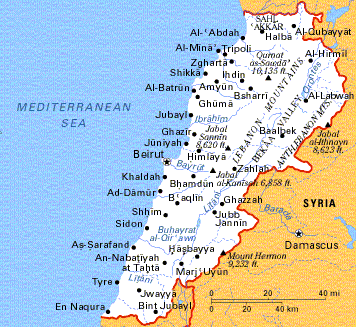Real Estate Investments & Business Law Firm Lebanon
A department of real estate composed of numerous experienced attorneys specialized in the real estate market and real estate law is ready to help you.
Records in the Investments & Great Incentives to Invest in Lebanon Real Estate Market.
On March 20, 2001, Parliament made changes and amendments on the law concerning the Foreign Acquisition of Property, which was proposed by the Cabinet on December 13, 2000.
 Law No. 296 provides motivation and incentives for foreign investment by making two important steps:
Law No. 296 provides motivation and incentives for foreign investment by making two important steps:
1-simplifying and easing the legal limits on foreign ownership of property, and
2-decreasing the estate registration fees to 5% for both Lebanese and foreign investors.
The Law 360 “Foreign Acquisition Property
Statistics About The Real Estate Market In Lebanon
Law 360 “Foreign Acquisition Property”
Whereas the former law limited the acquisition of land by foreigners to 5% in each Mohafaza, the actual law allows foreigners to acquire 3% of the total area of Lebanon regardless of the geographic location subject to one condition: foreigners can acquire no more than 3% of the total area of a caza. One exception to this law is Beirut, where foreigners are allowed to acquire up to 10% of the total area of the capital.
Foreigners can now acquire 3,000m2 of land without the passage of a decree by the Council of Ministers. The authorization to acquire a piece of land for a specific project has to be executed within a period of five years (extended only once for an additional five years if requested).
It is legally allowed for foreigners to buy more than 3,000m2 subject to a Council of Ministers’ decree.
The law has lowered real estate registration fees to 5.8% for both Lebanese and foreign investors. This 5.8% registration fee includes the municipality fee of 0.25%, stamp duty of 0.3%, the lawyers’ syndicate fee of 0.1%, and an additional 0.1% if the registration took place through a notary’s office rather than the land registry (these fees add up to 0.75% of the 5.8% fee and have remained unchanged).
Thus, registration fees, net of the additional duties, have been reduced by 1% for Lebanese investors and 11% for foreign investors.
Statistics And Facts Regarding The Real Estate Sector in Lebanon
BEIRUT: Lebanon real estate market has know a spectacular rise in what relates to the investments that were injected in the Lebanese real estate market.
These investments come from Arabs, expatriates, and foreigner investors.
You can take a look at some numbers to have an idea about the investments opportunities in the Lebanese real estate market.
The Arab Investment & Export Credit Guarantee Corporation evaluated Arab investments in Lebanon were $3.35billion in 2007, up 47.5 percent from $2.3 billion in 2006, and an 88 percent rise from $1.8 billion in 2005.
Arab Investments reached a record high since 1995, at 24 percent in 2007, compared to 13.7 percent in 2006, 4.8 percent in 2005, and 17.6 percent in 2004.
Lebanon’s rank was second-largest recipient of Arab capital among other Arab countries ,Indeed real estate market has been booming in Lebanon , its spot was the largest recipient of Arab capital in 2003.
Lebanon was the second-highest amount of investments in 2007, despite some instabilities in the country.
On the other side Arab investments fell in Egypt, Jordan, Tunisia, and Yemen.
Arab investments in Lebanon were basically into the-real estate sector.
These composed 60 percent of total investments in the country.
In all the region, the real estate sector in Lebanon received the majority of Arab and foreign capital, with a boost in the demand in what relates to the Lebanese real estate sector.
Lebanon’s real-estate market was the primary recipient of all Arab investments and constituted 80 percent of such investments.
Real-estate sales transactions in Lebanon in the first five months of 2008, rose by 20 percent compared to the same period of the precedent year (2007)
Property taxes also knew a rise of 55 percent to reach LL 205 billions.
The Lebanese ministry of Finance valued the rise over the last months of by 72 percent to reach $1.993 billion.
The rise of the real estate market in Lebanon leads to think of a further interest in Lebanon’s real estate sector.
The investments were distributed between the capital Beirut and the other areas of Lebanon.
The majority of collected property taxes in the first five months of 2008 were in:
- Beirut with 30.3 percent of the total amount.
- Baabda with 22.2 percent,
- Metn with 19.1 percent,
- Keserwan with 11.0 percent,
- North with 7.1 percent,
- South with 5.5 percent,
- and the Bekaa Valley with 4.0 percent.




